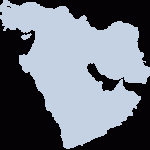Sunday
May162010
Middle East Inside Line: Nakba Day/Independence Day; Deterioration in East Jerusalem; Israel's Lieberman "An Imbecile"?
 Sunday, May 16, 2010 at 8:55
Sunday, May 16, 2010 at 8:55  Independence Day/Nakba (Catastrophe) Day: Palestinians marked Nakba Day on 15 May, remembering the day in 1948 when Israel declared statehood as the prelude to the fleeing or expulsion of some 700,000 Arabs from their homes. Hundreds of Israeli Arabs took part in a rally in East Jerusalem. On the same day, leaders of Hamas and Fatah displayed rare unity in a joint rally in Gaza.
Independence Day/Nakba (Catastrophe) Day: Palestinians marked Nakba Day on 15 May, remembering the day in 1948 when Israel declared statehood as the prelude to the fleeing or expulsion of some 700,000 Arabs from their homes. Hundreds of Israeli Arabs took part in a rally in East Jerusalem. On the same day, leaders of Hamas and Fatah displayed rare unity in a joint rally in Gaza.Israeli Arab MK Jamal Zahalka said that if Israel's government were to go ahead with its construction plans for East Jerusalem, a "third Intifada would erupt," calling "what is happening today in Jerusalem a second Nakba".
Middle East Analysis: Russia’s Strategy on Israel, Palestine and Beyond
On Saturday night, the National Left (Smol Leumi) movement, Peace Now, and "Ofek" (the Meretz party at Hebrew University) organized a large demonstration near Zion Square in Jerusalem. Under the banner "Zionists are not settlers!", thousands of left-wing activists called for "an end to the occupation."
East Jerusalem's Deteriorating Situation: According to the Association for Civil Rights in Israel (Acri), "a unified Jerusalem does not exist and he truth is, two cities exist side by side":
- Only three social service stations operate in East Jerusalem in comparison to 20 in the West.
- Less than 50 per cent of schoolchildren attend public schools; 1,000 classrooms are needed.
- The annual budget allocation per elementary school child in East Jerusalem was $152 (577 shekels) compared with $627 (2,372 shekels) in the west of the city.
- Eighty homes were demolished in 2009, leaving 300 people homeless.
- Hundreds of streets do not receive rubbish collection services.
- About 160,000 Palestinianresidents have no suitable and legal connection to the water network and 50km of main sewage lines are lacking.
Acri said Palestinians faced discrimination in almost all sectors of life, "Israel's policy for the past four decades has taken concrete form as discrimination in planning and construction, expropriation of land, and minimal investment in physical infrastructure and government and municipal services."
The report added that Israel has expropriated more than one-third of East Jerusalem land which was privately owned by Palestinians, on which it has built more than 50,000 homes for the Jewish population:
- A majority of Palestinians in East Jerusalem, including three out of four children live in poverty.
- Only 10 per cent of East Jerusalem's 300,000 Palestinians have access to social services to help remedy the situation.
- 65 per cent of Palestinian families in East Jerusalem exist below the poverty line, as opposed to 31 per cent of the city's Jewish families.
North Korea Attacks Israel's Lieberman: Looks like Pyongyang is not happy that Israeli Foreign Minister Avigdor Lieberman has called Iran, Syria, and North Korea .the "new Axis of Evil" because of their pursuit of a "mad arms race". North Korea's Foreign Ministry said Saturday that its government has nothing to do with any spread of WMDs and called Lieberman "an imbecile in diplomacy".



